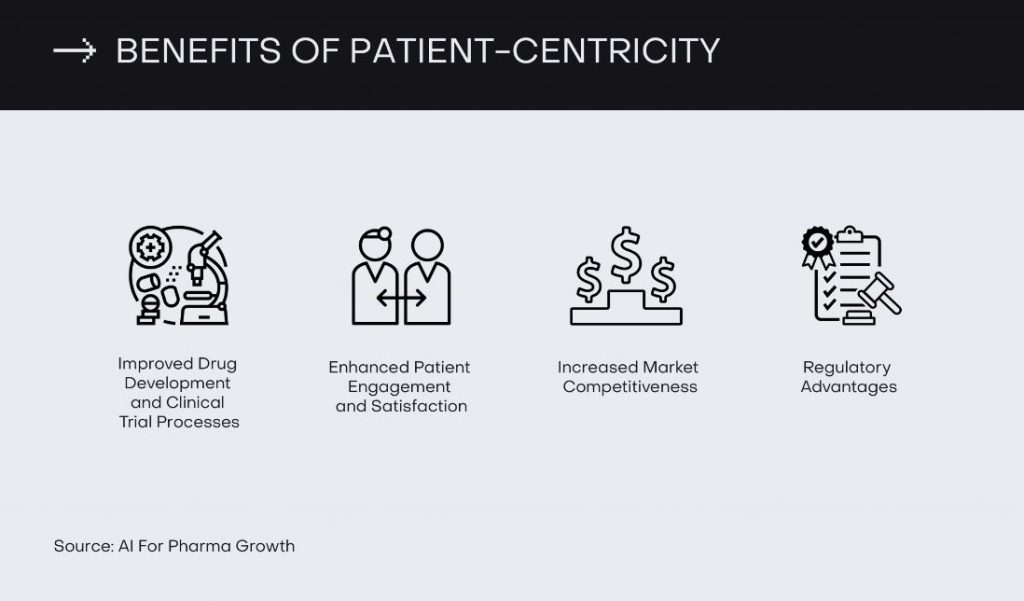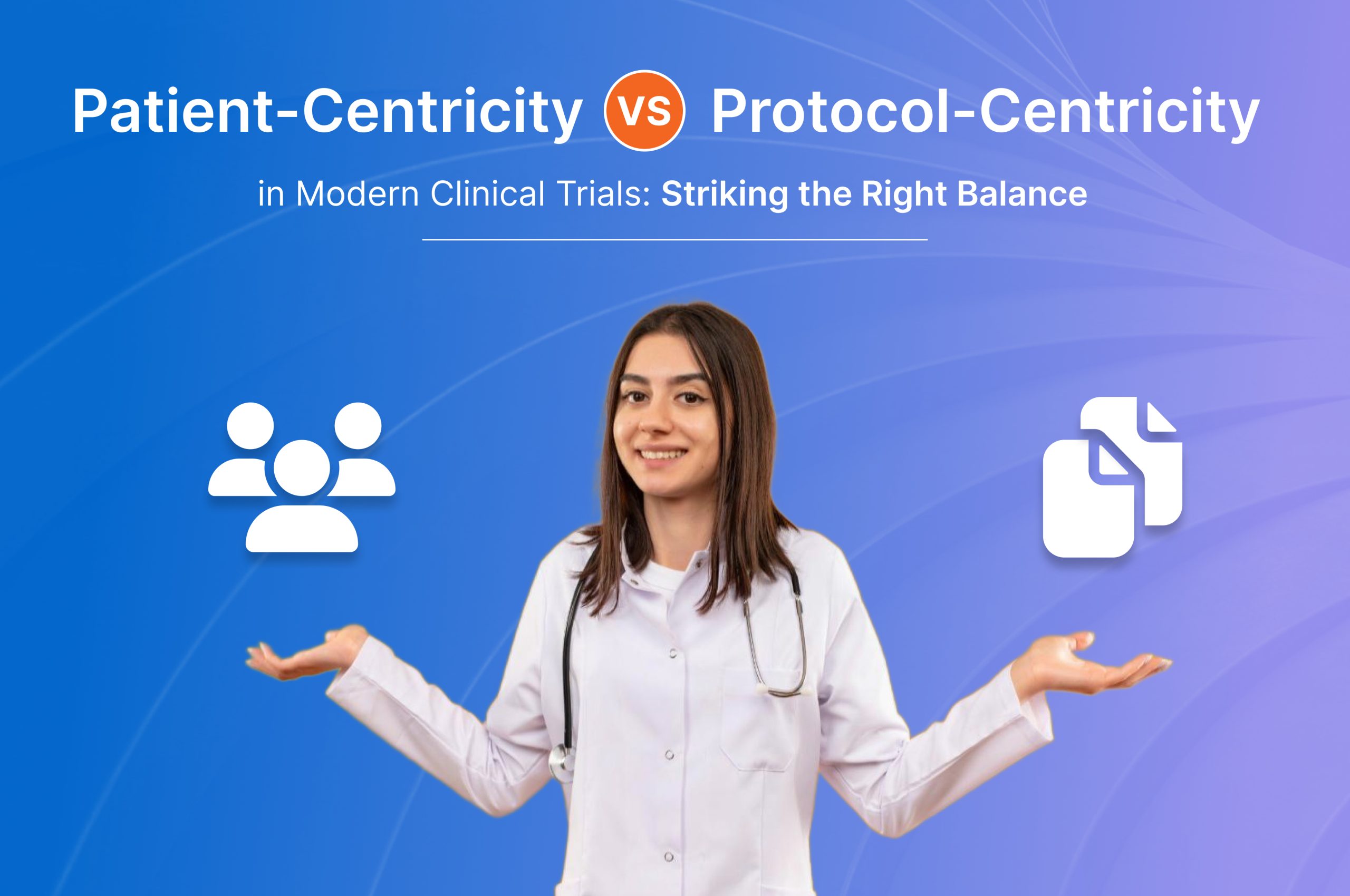Clinical research hasn't exactly had the most glamorous reputation, let's face it. Do you recall the old sci-fi flicks when scientists stalk poor unfortunates along corridors as their needles flash? Fortunately, such times are (largely) in the past. A new strategy called "patient-centricity" is at the center of the change the field is currently experiencing.
Imagine being treated like, well, a human being after receiving a diagnosis, as opposed to feeling like a statistic in a massive medical maze! You are a participant in the search for new medicines, and your opinion matters. Your demands are taken into consideration. It sounds quite good, doesn't it?
However, why the abrupt change? To begin with, the traditional methods weren't quite effective. Trial enrollment was a pain, participation rates were pitiful, and occasionally it felt like more paperwork needed to be completed than real patients.
The Influence of Patients: Facts Tell It All
I could go on and on about how important patient-centricity is, but let's just add a few real data points to make the case. A staggering 87% of patients asked in a study by the Center for Information and Study on Clinical Research Participation (CISCRP) said that they thought the main goal of clinical research should be to help patients. Startled? Not me.
But there's still more! According to a study that was published in the journal Clinical Trials, study enrollment rates increase when patients actively participate in the research process. And who doesn't like increased rates of enrollment? Both patients and researchers benefit from it.
And there's the relevancy question. Consider this: how often have you filled out a survey and felt that the questions simply did not adequately represent your experience? Yes, clinical trials have occasionally fallen victim to it. The fact that they weren't created with patients' everyday lives in mind makes it challenging to apply research findings to practical applications.
"Let's consider why this seismic shift is occurring before getting into the specifics. To begin with, conventional clinical research techniques frequently mirrored a game of hide-and-seek between researchers and participants. Instead of being engaged participants in their own treatment, patients were more often viewed as insignificant data points. But such a bygone method isn't going to work in this day and age when patient empowerment is more pertinent than ever before."
Krunal Bhatt, Technical Manager, Octalsoft
According to recent research by KPMG, healthcare companies will need to take a step toward achieving patient-centricity if they are to live up to their lofty goals. What then does this voyage entail?
- Executives frequently state that their companies prioritize the patient experience (74 percent), digitally connected services (72 percent),
- Effective patient-organization communication (71 percent).
- Two-thirds of executives (66 percent) believe it's critical to change the foundation of their incentives from volume to patient outcomes and experience.
- Executives (61 percent) concur that adopting a patient-centered paradigm is crucial for their firms.
The Rise of the Patient Advocate
In the past, patients may have felt like mere spectators in the clinical research arena, but now they're stepping into the spotlight as bona fide advocates for change. Gone are the days of passive participation—patients are demanding a seat at the table, and rightfully so!
Imagine this: You're diagnosed with a rare disease that only affects a handful of people worldwide. Instead of feeling like a lab rat in an oversized maze, you're now an integral part of the research process. Your insights, experiences, and preferences shape the trajectory of the study, giving you a newfound sense of empowerment and purpose. It's like being handed the keys to the kingdom, but with less royal protocol and more consent forms.

Enter the Patient Advocate: More Than Just a Statistic
Patient-centricity flips the script. Patients are no longer passive participants, but active collaborators. Their perspectives are woven into the research fabric, from study design to post-trial communication.
Here's a glimpse into what this new approach looks like:
- Focus on Patient Needs: Imagine a world where clinical trials cater to your schedule, not the other way around. Flexible appointment times, telehealth options, and even childcare assistance become the norm.
- Clear Communication is Key: Jargon-filled consent forms are out. Crystal-clear explanations about the research process, potential risks and benefits, and of course, your rights as a participant, become the gold standard.
- The Feedback Loop: Your voice doesn't disappear after you sign the dotted line. Patient feedback is actively sought and incorporated throughout the research journey.
But Wait, There's More!
Technology is playing a starring role in this patient-centric revolution. Mobile apps can make reporting side effects a breeze, wearables can track health data seamlessly, and online communities can connect patients with others on a similar journey.
So, what's the upshot of this patient-centric approach? Here are some highlights:
- Faster Development of Treatments: Happy, engaged participants mean smoother recruitment and research that reflects real-world needs. This translates to faster development of new therapies for everyone.
- Reduced Costs: Less time spent chasing after participants and tweaking irrelevant protocols means more efficient use of resources.
- Empowered Patients: Knowledge is power, and patients become active participants in their own healthcare journey.
Of Course, There's Always Room for Improvement
Change doesn't happen overnight, and even the most patient-centric research landscape has its challenges. Privacy concerns, ensuring equitable access for diverse populations, and maintaining long-term patient engagement are all aspects that require ongoing attention.
The Power of Collaboration
If there's one thing we've learned from the rise of patient-centric approaches, it's that collaboration is key. Gone are the days of researchers operating in silos, hoarding data. In this brave new world, collaboration is the name of the game.
By working together, we can break down barriers, foster innovation, and ultimately improve patient outcomes. It's a win-win for everyone involved.
The Road Ahead: A Brighter Future for Clinical Research
The emergence of patient-centricity marks a turning point in clinical research. By putting patients at the forefront, we're paving the way for a future where groundbreaking discoveries are not just possible, but achieved with the active collaboration of the very people they aim to help.
So, the next time you hear about clinical research, think beyond the lab coats and white rooms. Imagine a space where patients are valued partners, and the quest for better health is a shared journey. That's the power of patient-centricity, and it's a future worth getting excited about.
Bringing research closer to the patient can help us make studies more accessible to larger and more diverse patient populations, resulting in more representative study data and more effective medicines and therapies.
Octalsoft has already begun to forge ahead toward the future of clinical trials with our comprehensive array of eClinical software solutions.
Do you want to know how you can overcome existing clinical trial challenges, accelerate the development of innovative therapies, and usher in a new era of evidence-based medicine that benefits patients worldwide?



